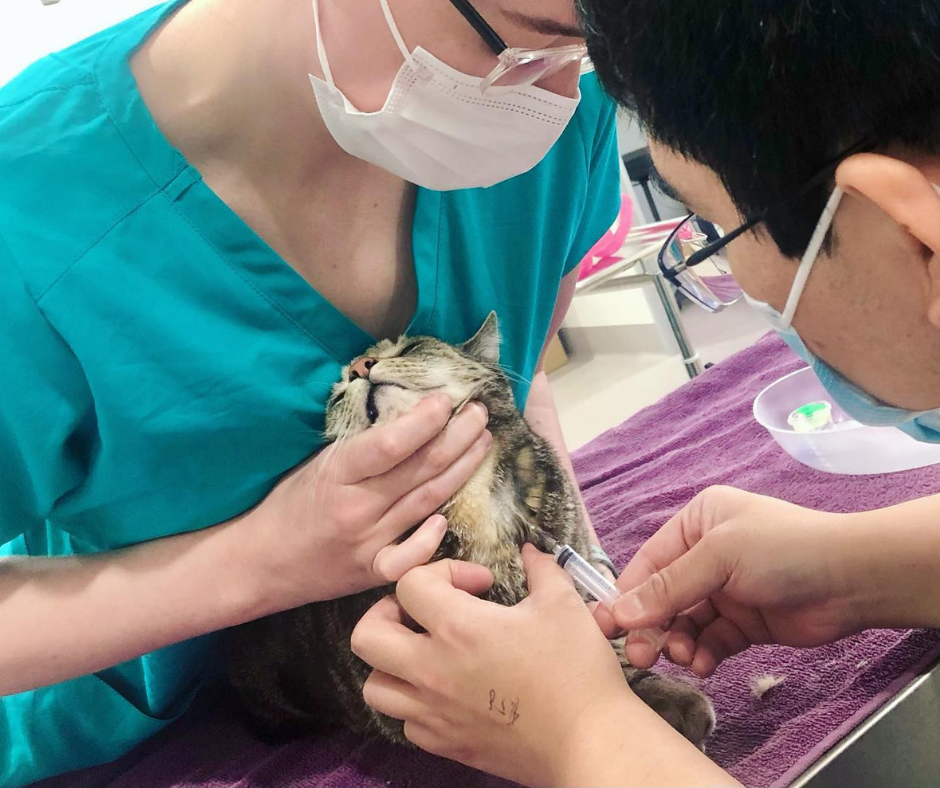Vaccinating your pet is an important part of keeping them healthy and protecting them from serious illnesses.
Vaccinations help protect pets from a variety of diseases, including rabies, distemper, parvovirus, hepatitis and more.
And regular vaccination can also reduce the risk of your pet developing certain types of cancer or other infections caused by bacteria or viruses.
They also protect your pet’s health, and can help prevent transmission of disease to humans as well as other animals in the community. Which is why it’s essential you keep up with recommended vaccine schedules for your pet’s health and safety.
When are puppy vaccinations required?
The timing of puppy vaccinations depends on the vaccination protocol your veterinarian recommends.
Generally, most puppies will receive their first vaccine between 6 and 8 weeks of age. Some vaccines may be given as early as 4 weeks for maximum protection however this is generally not recommended.
After the initial round of shots, boosters are typically given every 3 to 4 weeks until puppies reach 16 weeks of age.
Once the puppy has reached this age, a booster vaccine is required every 1 to 3 years for most vaccines. Your veterinarian will be able to provide you with specific recommendations for your puppy’s vaccination needs.
What vaccinations do dogs need Australia?
In Australia, the vaccinations that dogs need depend on the age and health of the dog as well as their lifestyle.
Puppies should be vaccinated against a few common diseases, including distemper, parvovirus, hepatitis and Bordetella. It is also recommended your dog receive a rabies vaccine, although this is not legally required in Australia.
Adult dogs should receive booster shots of the same core vaccines every 2-3 years, as well as any additional vaccines that may be recommended based on their lifestyle or risk factors.
What vaccines does your cat need?
Cats need to be vaccinated against a variety of serious illnesses and diseases, including panleukopenia (also known as feline distemper), rhinotracheitis, calicivirus, and rabies. It is essential that cats receive all the necessary vaccinations in order to remain healthy and safe from these potentially fatal illnesses.
The recommended vaccination schedule for cats will depend on their age, lifestyle and any risk factors present.
Adult cats should receive booster shots of the same core vaccines every 1-3 years, as well as any additional vaccines that may be recommended based on their lifestyle or risk factors.

How often should pets be vaccinated?
How often pets should be vaccinated depends on a variety of factors, including the age and breed of your pet, their lifestyle and any risk factors they may have.
Generally speaking, it is recommended that puppies receive their first vaccinations between six to eight weeks of age and booster shots of the same core vaccines every 2-3 years afterwards.
Adult cats and dogs should also receive booster shots of the same core vaccines every 1-3 years, as well as any additional vaccines that may be recommended based on their lifestyle or risk factors.
Speak to your veterinarian for advice on what vaccinations are appropriate for your pet’s needs.
It is important to keep up with recommended vaccine schedules for your pet’s health and safety.
Vaccinating your pet can help protect them from a range of serious illnesses, reduce the risk of transmission of disease to humans and other animals. It can also reduce the risk of developing certain types of cancer or other infections caused by bacteria or viruses.
This is why, it is essential you keep up with recommended vaccine schedules to ensure your pet is protected and healthy. Speak to your veterinarian for advice on what vaccinations are appropriate for your pet’s needs.
How much do pet vaccines cost?
The cost of the vaccine takes into consideration factors such as the type of vaccine needed, the number of doses required and your geographic location.
In addition to the cost of the vaccine itself, many veterinarians will charge an office visit fee for administering the vaccine. It is important to speak to your veterinarian about the cost of pet vaccines and any other associated fees before making an appointment.
Overall, vaccinating your pet is an important part of keeping them healthy and safe. While the cost of pet vaccines can be a financial burden, it’s essential that you keep with recommended vaccine schedules to protect your pet from a variety of serious illnesses and diseases, as well as reduce the risk of transmission of disease to humans and other animals in the community.
Speak to our veterinarians at Plus One Vet for advice on what vaccines are appropriate for your pet’s needs. For more information, or to book a vaccine appointment, please get in touch by calling or booking online today.




